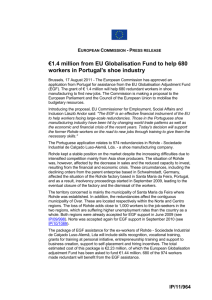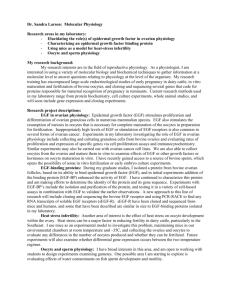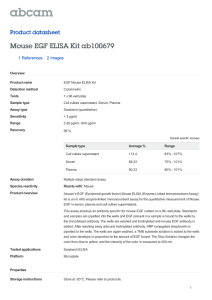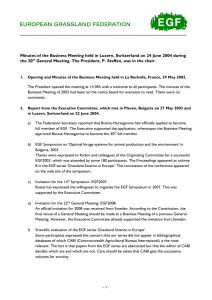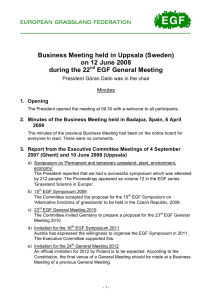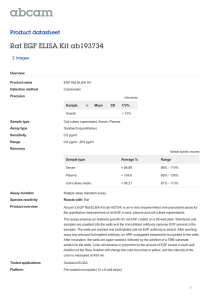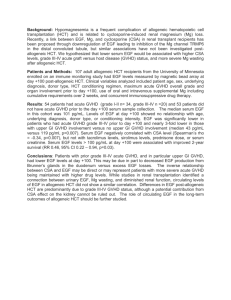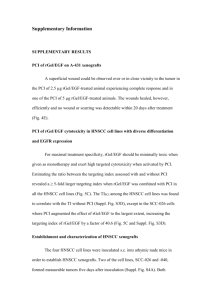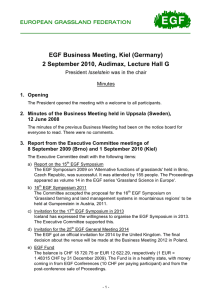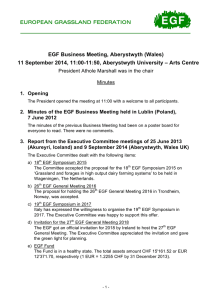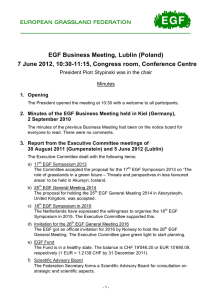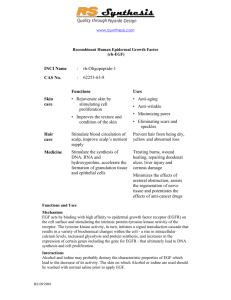DOC - Europa
advertisement
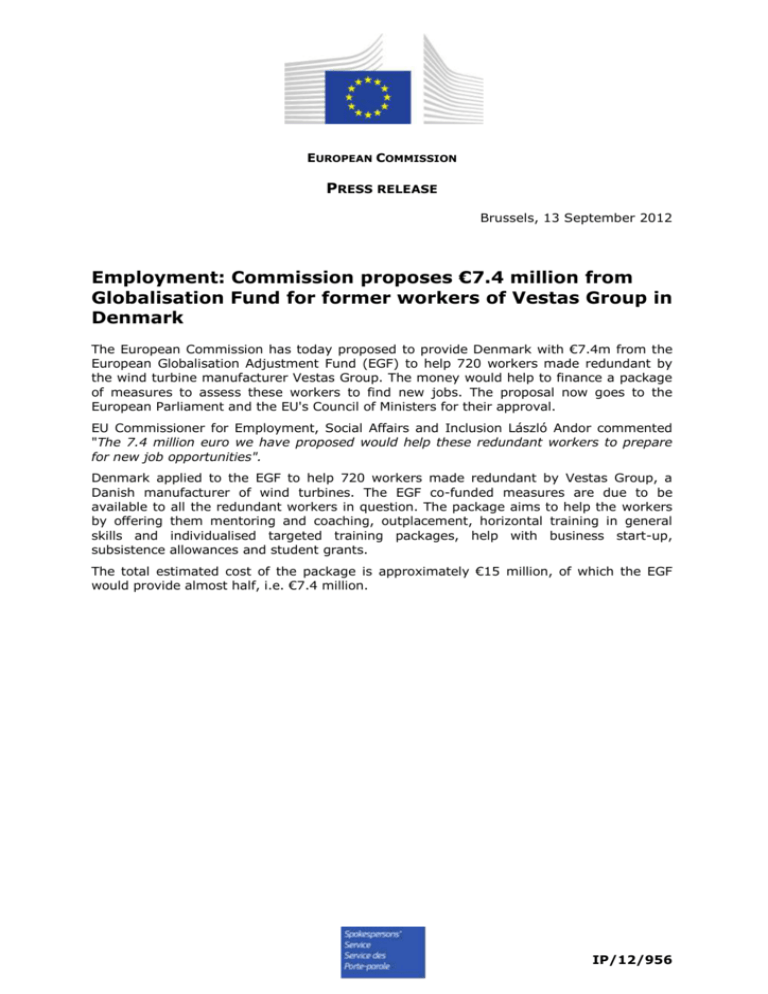
EUROPEAN COMMISSION PRESS RELEASE Brussels, 13 September 2012 Employment: Commission proposes €7.4 million from Globalisation Fund for former workers of Vestas Group in Denmark The European Commission has today proposed to provide Denmark with €7.4m from the European Globalisation Adjustment Fund (EGF) to help 720 workers made redundant by the wind turbine manufacturer Vestas Group. The money would help to finance a package of measures to assess these workers to find new jobs. The proposal now goes to the European Parliament and the EU's Council of Ministers for their approval. EU Commissioner for Employment, Social Affairs and Inclusion László Andor commented "The 7.4 million euro we have proposed would help these redundant workers to prepare for new job opportunities". Denmark applied to the EGF to help 720 workers made redundant by Vestas Group, a Danish manufacturer of wind turbines. The EGF co-funded measures are due to be available to all the redundant workers in question. The package aims to help the workers by offering them mentoring and coaching, outplacement, horizontal training in general skills and individualised targeted training packages, help with business start-up, subsistence allowances and student grants. The total estimated cost of the package is approximately €15 million, of which the EGF would provide almost half, i.e. €7.4 million. IP/12/956 Background Wind turbine manufacturing in the EU has been seriously affected by changes in world trade patterns, which have brought about a significant reduction of EU manufacturers' share of the world wind turbine market (down from 65.5 % in 2006 to 43.7 % in 2010). Although European production of wind turbines has increased in recent years, the global market for wind turbines has developed even faster, especially in Asia and North America. For the first time in 2010, more than half of all new wind power generation capacity was added outside the traditional markets of Europe and North America. This development was mainly driven by the continuing economic boom in China, which accounted for half of new global wind turbine installations. . Wind turbines are increasingly manufactured where they are purchased. In 2011 already, 80 to 90 % of turbines were manufactured in the region where they are to be installed. The Vestas Group redundancies affect five municipalities located in adjacent regions of Midtjylland (Randers, Favrskov, Aarhus and Ringkøbing-Skjern) and Syddanmark (Varde). All these municipalities have suffered from a rapid rise in unemployment (especially longterm) and a steep decline in job vacancies (especially in industry and production. Moreover the municipalities concerned have reported that there are no suitable job openings for the profile of the workers made redundant by Vestas Group. As a result, the highly skilled dismissed workers may need to move away to find a job. There have been 101 applications to the EGF since the start of its operations in 2007. Some €442.2 million ha s been requested to help about 91,000 workers. EGF applications are being presented to help redundant workers in a growing number of sectors, and by an increasing number of Member States. More open trade with the rest of the world leads to overall benefits for growth and employment, but it can also cost some jobs, particularly in vulnerable sectors and affecting lower-skilled workers. This is why Commission President Barroso first proposed setting up a fund to help those adjusting to the consequences of globalisation. The EGF was established at the end of 2006 and was designed to demonstrate solidarity from the many who benefit from openness to the few who face the sudden shock of losing their jobs. In June 2009, the EGF rules were revised to strengthen the role of the EGF as an early intervention instrument forming part of Europe's response to the financial and economic crisis. The revised EGF Regulation entered into force on 2 July 2009 and applied to all applications received from 1 May 2009 to 30 December 2011. Building on the experience acquired with the EGF since 2007 and its value added for the assisted workers and affected regions, the Commission has proposed to maintain the Fund also during the 2014-2020 multiannual financial framework, while further improving its functioning. 2 Further information László Andor's website: http://ec.europa.eu/commission_2010-2014/andor/ EGF website Video News Releases: Europe acts to fight the crisis: the European Globalisation Fund revitalised Facing up to a globalised world – The European Globalisation Fund Subscribe to the European Commission's free e-mail newsletter on employment, social affairs and inclusion: http://ec.europa.eu/social/e-newsletter Follow László Andor on Twitter: http://twitter.com/#!/LaszloAndorEU Contacts : Jonathan Todd (+32 2 299 41 07) Nadège Defrère (+32 2 296 45 44) 3
